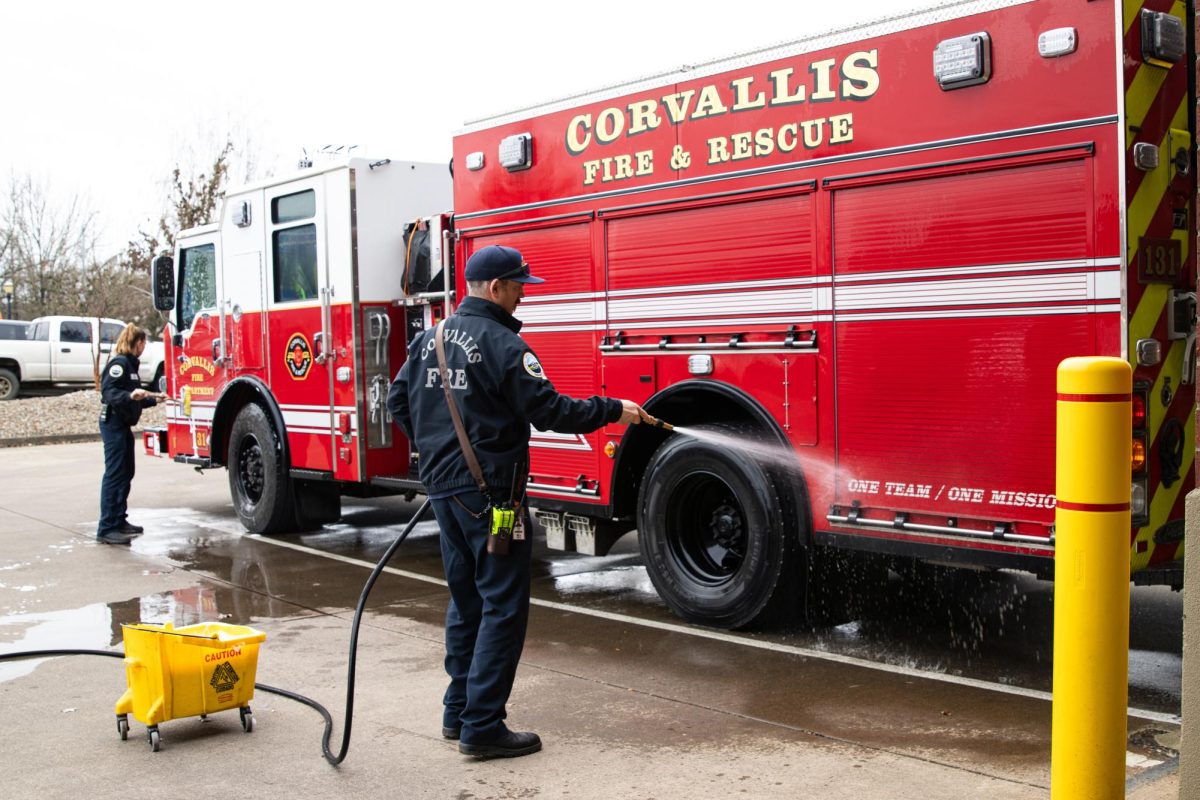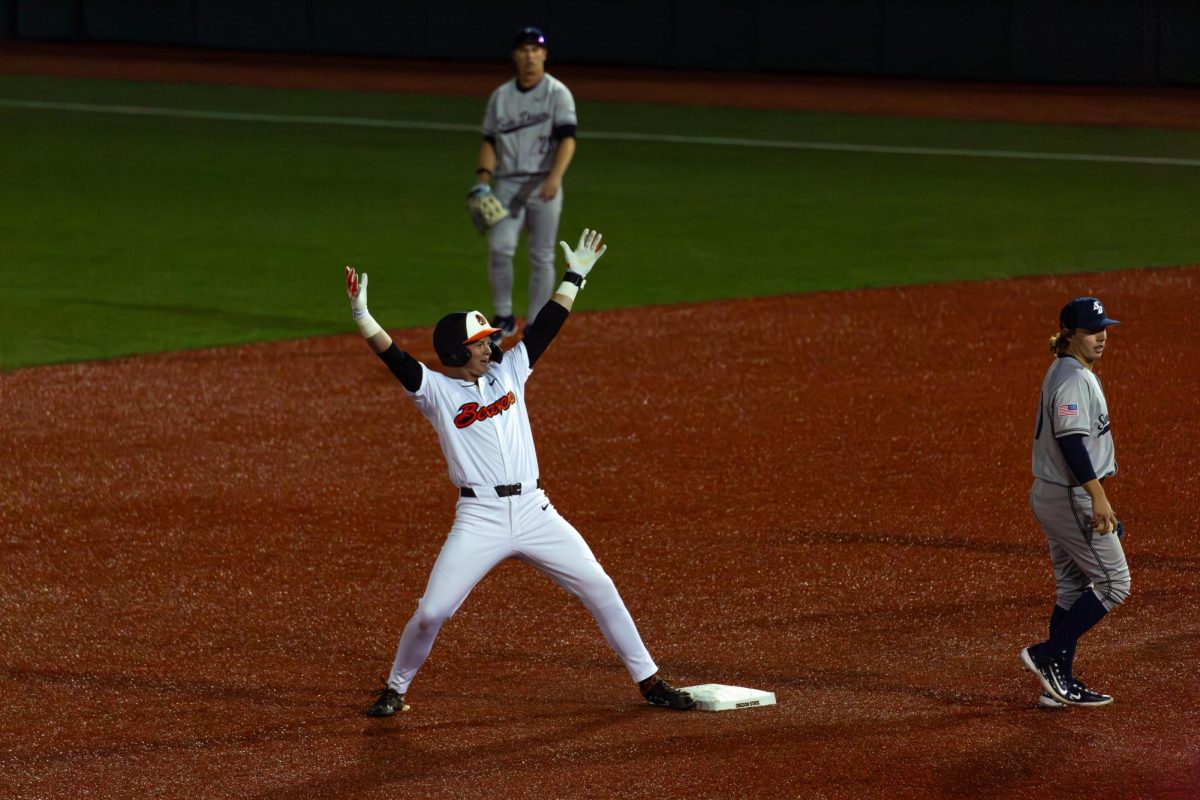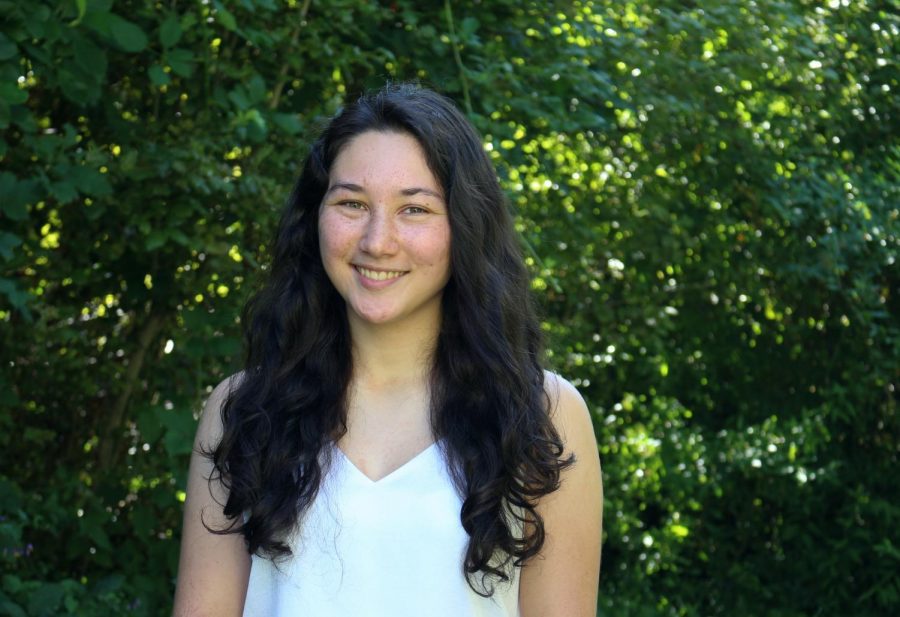Letter from the Editor: To move forward from here, roll back the ego
September 7, 2020
Finding and reporting the truth isn’t easy. Neither is reading, processing and understanding the truth. It’s generally not quick and snappy and you don’t always come away feeling triumphant. More on that in a second.
This school year’s been similar to what I imagine it’s like to star in a performative art piece where you’re stuck in a small swimming pool, but you can’t swim very well, you’re not quite sure what’s going on and it’s the audience’s job to deal out a hearty smack on the head every time they see you breach the surface for air.
A student was controversially and unlawfully arrested by the Oregon State Police. OSP broke their contract with Oregon State University. A new OSU public safety force is forming. We got a new university president. A candidate for Associated Students of OSU’s presidency tried to bribe another candidate. A pandemic broke out and our educations moved online. Black Lives Matter protests drew thousands. Students advocated for their rights, for better treatment at their jobs and for transparency from the university. Students threw grand events and educated one another. The Baro reported on it all. And this little summary barely scratches the surface.
With such big stories breaking this year, as the Editor-in-Chief of the Baro and the one person with ultimate editorial control, I made a lot of heavy decisions, many of which took me hours of consideration. I also engaged in a lot of difficult conversations, from which I learned a lot about learning into and navigating conflict.
News is so, so crucial. As EIC, I knew it was history in our hands. It influenced community dialogue. It brought attention to the good and the bad. It is power. Journalists are bound to report thoroughly on truth, context and diverse perspectives. We are bound to fact check and make corrections and updates and follow up. We are bound to amplify the voices of those who need it, minimize harm and provide accountability and transparency.
This responsibility never left my mind. I did this job because I care so deeply about you. News is a framework for our reality, it must be solid and ethical for us to truly understand what’s going on.
I was shocked to learn about some widespread assumptions while meeting with community members who pointed out our mistakes, had concerns regarding our coverage or who professed to believe I had no conscience and was out to push my own agenda. It hurt every time I read an angry email or comment, and I took time to consider whether each one merited change. In particular, one email stands out to me – a community member raised concerns about a story, I responded at length, then they sent me a final email expressing gratitude for the explanation and said it seems to them like I’m taking my job seriously.
I was stunned by the idea that it could seem at first glance to anyone like I took my position lightly. I was repeatedly horrified to see people assume the Baro published coverage or didn’t publish coverage based on my staff’s agenda, to push one way of thinking or that we were merely aiming to get more clicks or stir up drama.
We work overtime to include context in our stories, to portray full pictures and answer community questions in an unbiased, accurate way. And as student journalists, we’re all learning. I appreciate people informing me that we messed up a story. I appreciate the person who informed me that we should stop using the word “handicapped” to describe people. I appreciate every single person who emailed me a news tip or called to give me information, though I wasn’t able to respond to every single one.
If you think the local news media isn’t covering something that people need to know, hit us up. I never, ever rejected a story pitch simply because I disagreed with it, and in fact my editors and I made an effort to determine which viewpoints we disagreed with and make sure they didn’t go unrepresented because of any internal biases.
My team worked to find and publish definitive truths, and so will the team of my successor Jaycee Kalama, who’s immensely thoughtful and hardworking. My Letter from the Editor as an incoming Editor-in-Chief acknowledged my cognizance of the widespread lack of faith in the news media, and stated my intent to address that by being transparent, reaching out to the community to talk with those wary of us and foster truth, pushing the quality of our articles even higher and including more groups in our coverage. I hope I was able to set at least some positive change in motion.
In the deliriously chaotic world we’re living in right now, it’s vital that we are all taking the time to review our own thoughts, assumptions and emotions and determine what mindsets came from power, from privilege, and which thoughts we haven’t been willing to consider because they challenge that fragile sense of power we feel over the environment around us. Stand up for your beliefs, of course, just be careful how you get them.
It is easy to assume that someone is asking you to change the way you act or use your words because they want to control you. But I find that usually that’s not the case. Although, to be honest, I found that was the case with a few school administrators who wanted us to stop pushing and questioning them. I hope they’ll come around.
I think people get mad when they realize they’re wrong or uninformed in the midst of an argument because they feel that now the other person has power and control over them, or because they feel uncomfortable, and they don’t like that someone has the power to make them feel uncomfortable, or less moral.
Have you ever felt that way? I have. But we can learn to overcome the knee-jerk desire for power in favor of continuous growth. I had to get my ego obliterated at points to run this paper, when I overstepped or wrongly assumed, and I am truly appreciative of that. Although I could’ve done without some of the nastier emails and phone calls. No hard feelings, though.
Finding articles, reading beyond the headline, informing ourselves of details, reasons and a variety of different viewpoints consumes significant time and energy. Sometimes you’ll learn that you were wrong or ignorant about something. That’s part of it, too. To resolve so many of the problems we’re seeing right now, we have to do so. It’s a skill, absorbing new information and thinking critically, seeking and accepting new context.
Local journalism provides the opportunity to do so, and is necessary for a functioning democracy. Please support it. Please think of the news media, including and perhaps especially student media, as a community partner. Tell us how you think we could improve.
This job wasn’t easy, but it was the most important thing I’ve ever done. It helped me learn to act with love and set aside my assumptions, and my ego, to work for the good of something bigger than myself. Thank you for the support, for the criticism, for the readership. Thank you for the most impactful learning opportunity of my life thus far. I am so grateful.
With love,
Delaney
“First Thoughts are the everyday thoughts. Everyone has those. Second Thoughts are the thoughts you think about the way you think. People who enjoy thinking have those. Third Thoughts are thoughts that watch the world and think all by themselves. They’re rare, and often troublesome.”
-Terry Pratchett


















































































![Newspaper clipping from February 25, 1970 in the Daily Barometer showing an article written by Bob Allen, past Barometer Editor. This article was written to spotlight both the student body’s lack of participation with student government at the time in conjunction with their class representatives response. [It’s important to note ASOSU was not structured identically to today’s standards, likely having a president on behalf of each class work together as one entity as opposed to one president representing all classes.]](https://dailybaro.orangemedianetwork.com/wp-content/uploads/2025/03/Screenshot-2025-03-12-1.00.42-PM-e1741811160853.png)
























